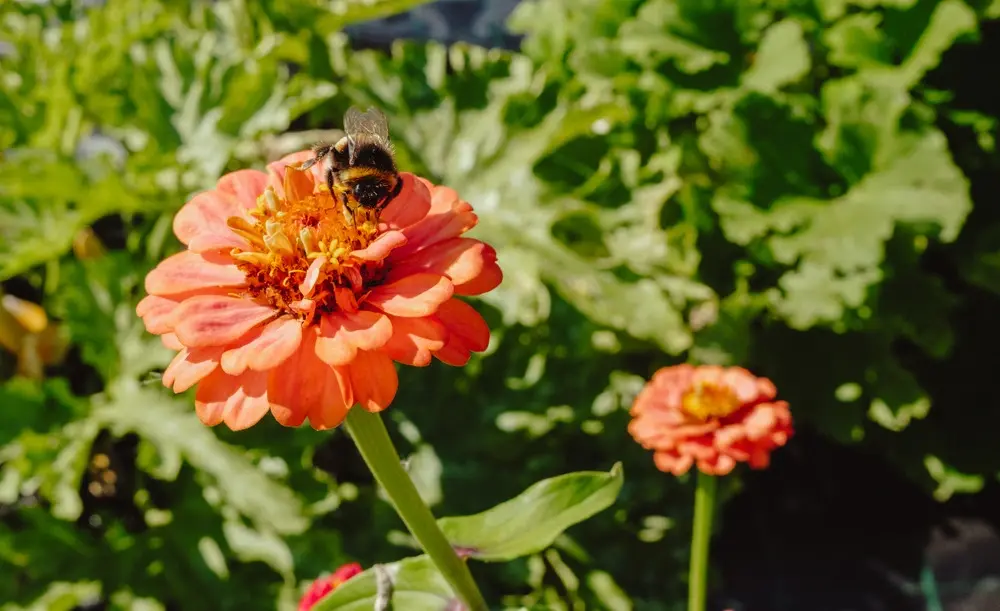
How Rooftop Gardens Are Helping Bees Survive in London
Discover how rooftop gardens in London help bees thrive by providing essential food and habitats, and learn how you can create your own bee-friendly space.
Introduction
Bees play a critical role in our environment, but their numbers are dropping quickly. In London, where buildings and concrete often replace green spaces, rooftop gardens have become a surprising but vital solution. These green spaces on top of buildings not only make the city look nicer but also offer crucial support for bees. In this blog, we’ll explore how rooftop gardens are helping bees in London and how you can get involved in this important effort.
The Importance of Bees
Bees are essential for our ecosystem. They help pollinate plants, which means they help flowers grow and produce fruits and seeds. This process is important for both the health of our environment and our food supply. Sadly, bees are facing big challenges due to habitat loss, pollution, and climate change. If we don’t take action, their numbers could continue to decline, which would affect many plants and crops.
The Urban Challenge for Bees
In cities like London, finding a good place for bees to live is tough. As cities grow, natural habitats for bees get replaced with buildings and roads. This means there are fewer places for bees to find food and build their nests. Pollution in the air and on the ground also affects bees’ health and behavior. Plus, there aren’t enough flowering plants in urban areas to provide the nectar and pollen that bees need to survive.
What Are Rooftop Gardens?
Rooftop gardens are green spaces created on the roofs of buildings. They can be small or large, and they can include everything from flower beds to vegetable patches. These gardens not only make the city more beautiful but also offer important resources for wildlife.
Benefits for Bees
Rooftop gardens are very helpful for bees in several ways:
Diverse Plant Life: Many rooftop gardens have a variety of plants, which provides bees with different sources of food throughout the year. This variety is important because different bees are attracted to different types of flowers.
Pollinator-Friendly Features: Some rooftop gardens include special features for bees, like bee hotels where they can nest, and water sources where they can drink. These additions make the gardens even more appealing to bees.
Case Studies and Examples
Several rooftop garden projects in London have shown how beneficial these green spaces can be for bees. For example, the rooftop garden at Queen Elizabeth Olympic Park not only adds greenery to the area but also provides a habitat for bees. Another project, the “Bee Urban” initiative, has turned unused rooftops into vibrant spaces that support local bee populations.
How to Create a Bee-Friendly Rooftop Garden?
Choosing Plants
To attract bees, pick plants that offer plenty of nectar and pollen. Good choices include flowers like lavender, sunflowers, and marigolds. These plants are not only beautiful but also provide food for bees.Design TipsWhen setting up your rooftop garden, think about adding features that help bees. For example, you can install bee hotels, which are small shelters for bees to lay their eggs, and provide shallow dishes of water for them to drink. These elements make your garden a welcoming place for bees.
Maintenance
Taking care of your rooftop garden is important to keep it a healthy place for bees. This means regularly checking that your plants are healthy, keeping the water clean, and making sure there are no pests or diseases affecting the plants.
The Broader Impact of Rooftop Gardens
Rooftop gardens do more than help bees—they also benefit the city and its residents. They support urban biodiversity by creating green spaces where various types of wildlife can thrive. These gardens also improve air quality and help reduce the heat in the city. Plus, they offer social benefits by providing green spaces where people can relax and enjoy nature.
Conclusion
Rooftop gardens are a simple yet powerful way to support bees in London. By creating and maintaining these green spaces, we can help ensure that bees have a place to thrive in the city. If you’re inspired, consider starting your own rooftop garden or supporting local projects that benefit bees. Every little bit helps!





